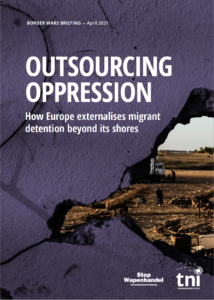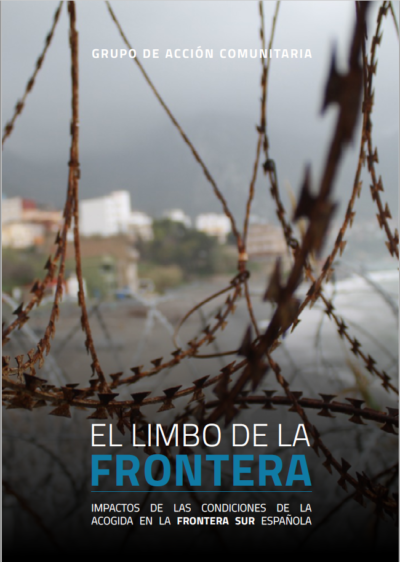EU civic and democratic participation. EU Migration and Asylum. Migration and asylum politices of the EU and Member states.
Reading materials:
(ENGLISH & SPANISH Report) Outsourcing oppression: How Europe externalises migrant detention beyond its shores
This report seeks to join the dots between Europe’s outsourcing of migrant detention to third countries and the notoriously poor conditions in those migrant detention centres. Europe calls the shots on migrant detention beyond its shores but is rarely held to account for the deeply oppressive consequences, including arbitrary detention, torture, forced disappearance, violence, sexual violence, and death.
Access to full report : https://www.tni.org/files/publication-downloads/outsourcingoppression-report-tni.pdf
Acceso a informe completo: https://www.tni.org/files/publication-downloads/externalizar-la-opresion-tni.pdf

(ENGLISH Report) On 24 September 2020 European Commission released its new Pact on Migration and Asylum. Announced to be a “fresh start” to “build a system that manages and normalises migration for the long term” this document is composed of multiple pillars, objectives, roadmaps and Annexes, and, without a doubt, required a considerable effort on behalf of the European Commission. As a migrant women led platform whose rights and interests the proposed Pact concerns directly, we appreciate the Commission’s attempt to create a framework that must be feasible for the implementation by the Member States and the Union as a whole. However, similar to many migrant and refugee organisations in Europe, we are concerned that the proposed Pact will not meet its stated objectives, some of which are deeply problematic in themselves.
Report available at: http://www.migrantwomennetwork.org/wp-content/uploads/MIGRATION-PACT-THROUGH-THE-EYES-OF-A-WOMAN.pdf

(Spanish Report) La movilidad humana es un fenómeno histórico, complejo y dinámico, relacionado con los cambios ambientales, económicos, políticos y sociales de los territorios. A lo largo del siglo XXI se ha ido implementando un modelo de la migración basado en la seguridad, que responde entre otros, a intereses económicos. Las personas migrantes han pasado a ser moneda de cambio a través de la externalización de fronteras y los diferentes acuerdos multilaterales de desarrollo, cooperación y militarización de terceros estados, generando una doble lógica de «protección-control». La fortificación de las fronteras, físicas y administrativas dificulta las posibilidades de migrar y obliga a las personas a elegir otras rutas irregulares.
En los últimos años, en el tránsito desde África hacia Europa, se denuncian de forma sistemática la generalización de malos tratos y tortura en dichos viajes migratorios, así como situaciones de explotación laboral y sexual, venta de seres humanos y esclavitud, secuestros con fines de extorsión, detenciones en condiciones inhumanas y deportaciones a zonas deshabitadas del desierto del Sahara. Estudios previos han explorado los impactos psicológicos con los que llegan las personas migrantes. Estos datos, sugieren que las personas que llegan a Europa presentan un sufrimiento psíquico severo y situaciones de especial vulnerabilidad, lo que hace que la acogida en el territorio, cobre una gran importancia y responsabilidad.
Informe disponible en/Report available at: https://elpopular.uy/wp-content/uploads/2022/05/El-limbo-de-la-frontera.pdf


